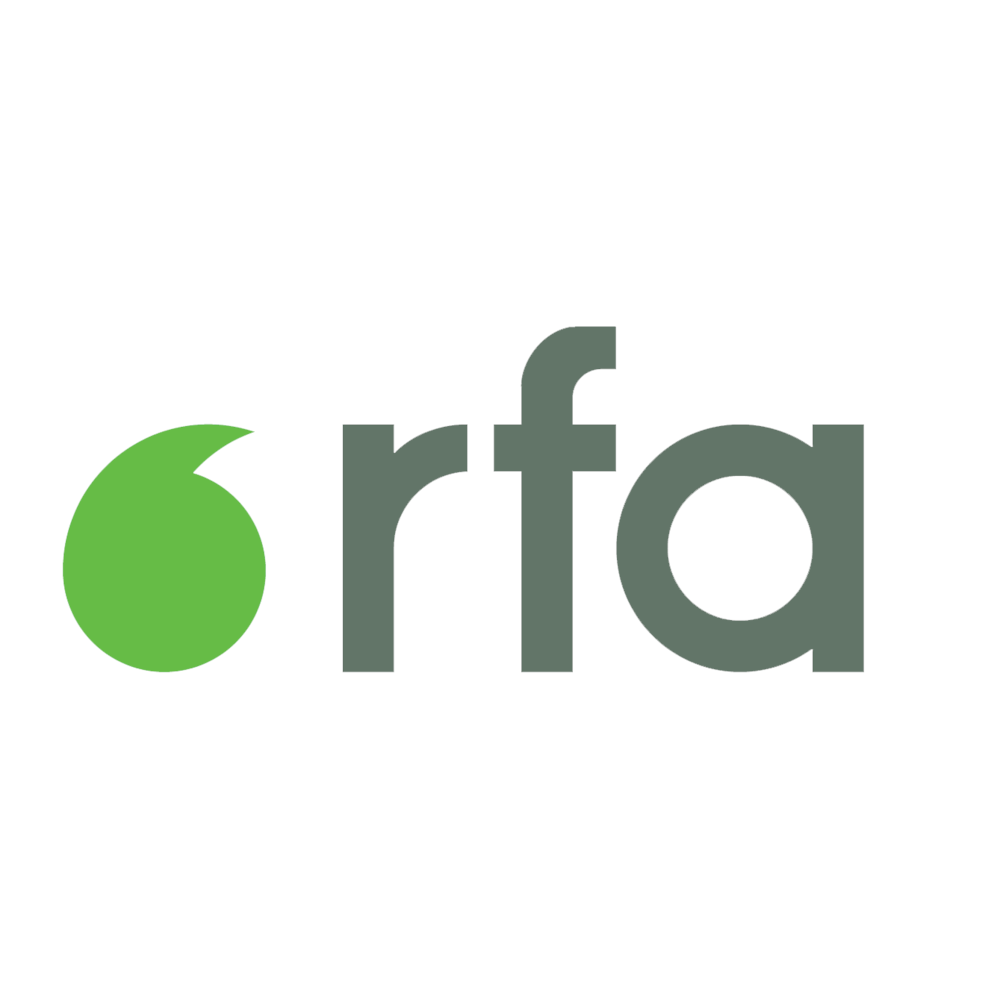What scientific publishing really needs is a cost-free publishing system that is run by the universities, and where the universities publish all their papers in.
Elsevier has a 3 billion dollar income, while most of its research is publicly funded. You are paying for the research, then paying again to access the results of the research that you already paid for. The executives can hang.
They have bonkers profit margins too. 38% in 2023. They’re in the same category as Microsoft or Google when it comes to profitability. Absolutely insane for a company that’s supposed to disseminate scientific information.
It is so much worse than that.
I spend my time researching the literature on a topic so that I can spend my time and energy writing a grant. It probably won’t get funded.
If it does, I get to do a bunch of work. It might involve travel, where I will do everything at minimum expense to save enough money for the coming lab work.
I will spend significant time getting the samples analyzed, spending most of the grant money. Then I will come up with a logical way to interpret the data.
I will spend more time sending a document around to coauthors. This may take months, or even years if the coauthors fight.
We eventually submit to a journal. It gets rejected.
We rewrite and submit again. A few months later, congratulations, you get to publish. Money please.
I work for the money to do the work, I work for the writeup, I fight for the acceptance, and I have to pay to publish.
It’s a stupid system.
as a PI/researcher they are spending thier careers fighting to get published/grants. i can see why alot of them left thier fields.
Behold nothing! >⠀<
Nothing will meaningfully improve until the rich fear for their lives

sorry, not the first time I saw you saying that.
Lmao i love this
I do agree 100%,. rich people should be scared. was just being a bit silly.
You can thank Ghislaine Maxwell’s dad for that shit.
“and for the hours of peer review, we pay nothing.”
Once again Scientists (do science for exposure and pay us) and Artists (get paid in exposure) being screwed over the MBAs.
IHMO: All science should be freely accessible, free as in freedom and price.
The more eyes can actually see something and find flaws, the better. There is no such thing as institutional credibility. Everyone makes mistakes and it takes everyone to find them, even more so the more complex something is. Leech publishers are not only problematic because they prohibit access, but also because they make real science considerably harder.
IHMO: All science should be freely accessible, free as in freedom and price.
Taxpayers pay $13B/yr worldwide to the private publishing industry, for content they cannot read.
Everyone makes mistakes
Except psychopaths who know their claim is garbage but lie through their teeth to get it published. That’s not a mistake, that’s corruption.
Nah, real science starts with a conclusion and then works backwards to find evidence for said conclusion. I think it is a more modern approach. Instead of validating reality, we are validating feelings.
Nah, science has always worked like that. This is what peer review is for.
What’s better than finding evidence that proves your own preconceived notions? Finding evidence that contradicts someone else’s. Schadenfreude is the great engine of scientific progress.
Why not create open-source online “scientific jorunal” with service provided by donations then? Am I missing something?
This idea has been around over 20 years. It dies every time because major lab PIs, usually in US, HATE the idea of not being able to gatekeep research publications in journals of “high impact”. This impacts how institutions are assessed, because, God forbid people actually have to read the papers. This feeds back to Editors, so the number one factor that influences Editors now is zip code.
If we went to a simple repository archive, with transparent peer review, then no one could imply their research is more important because of where it was published. We would let citations determine impact. Science publishing has always pushed the idea that if Einstein drove a Honda, everyone who drives a Honda is a genius.
Meanhile, The Lancet (JIF 105) took 12 years to retract a paper linking autism to vaccines, when it was clearly fraudulent from day one. Nature, Science, CELL, just stopped retractions, at best, they have “statements of Editorial Concern”. This high JIF model is why Alzheimers research has stalled behind a flawed hypothesis only reinforced by fraudulent work not retracted for 25 years. Some people, like the President of Stanford, rose to the top tier on fraud and journal gatekeeping.
2020 saw the world arguing over ivermectin based off a paper “reviewed” overnight, with the journal Editor as an author. The journal 5 years later refuses to prove the paper was peer reviewed at all. 3,400 citations.
Then we have predatory journals that will publish literally anything for page charges. Examples:
Get me off your fucking mailing list.

and
Chicken, chicken chicken chicken, Chicken? chicken. (Cited 35 times)

I have no clue how to improve this situation, but I appreciate this comment, especially the cited papers.
Chicken, chicken, chicken…
It’s simple. Have a central repository similar to Axriv or BioRxiv, but one step further where a manuscript is modified after peer review. The site publishes the paper and the peer reviews (few journals publish peer reviews). Readers can then decide if the science is valid, or not. It should be supported by a consortium of countries, because the world governments currently waste $13B a year on publication fees -that’s money that should be in labs doing research.
The current situation is so broken, important research can get held up for YEARS by some cunt at Harvard or Stanford who wil delay the process while his/her lab catches up. Soem of these prize winners owe their careers to “inspiration” from studies they reviewed and rejected.
world governments currently waste $13B a year on publication fees -that’s money that should be in labs doing research.
And only a tiny fraction of that $13B can buy a lot of lawyers, lobbyists, and favors to make sure things don’t improve.
The site publishes the paper and the peer reviews (few journals publish peer reviews). Readers can then decide if the science is valid, or not.
…So like Wikipedia for papers? With the “peer review” being the discussion section?
That sounds like a great project for Wikimedia TBH. That + Arixv’s nice frontend is literally the stack to do it. And they have the name recognition to draw people in.
It was a game changer for chicken. Still anticipated for the first Chicken Nobel Prize. Spun off three chicken companies.
What does PI mean (first sentence of your post)?
PI are usually the professors of the lab, who are basically the managers, they write grant proposals, and the such.
Principal Investigator, the person who heads a lab. Typically a university Professor at the rank of Assistant, Associate or full Professor.
The difference is the peer-review process. Without a good peer-review process, those journals won’t have a strong cite score and so they will be considered unreliable.
Without a good peer-review process, those journals won’t have a strong cite score
So why do they charge $6000 to publish, and pay $0 to reviewers?
The top JIF journals also lead with the most retractions. The journals also game the scoring system. Years ago, the number of printed paper journals affected impact factor scores, so Nature just started sending our paper journals free to game that number. Or, they gave out free subscriptions, because the real money is in page charges to the research labs.
All this has been discussed at the NIH and in government, always shut down by US Ivy League schools.
Error correction policies like retractions mean the journal is better, not worse, right?
Except that Nature was leading the world in retractions. The problem is the Editors form a cabal with top lab heads, because they want the best papers, first. So they close an eye to problems seen in peer review. Retractions revealed the Emperor had no clothes.
Why does Science, CELL, Nature, etc., keep reviews secret?
For a modern scientist, we now have to scan https://retractionwatch.com/ once a week as well as https://pubpeer.com/, where HUNDREDS of fraudulent papers have been outed without any formal retractions.
deleted by creator
Not just science. I own a small art business. The magazines in my world all do this. I see my competitors paying hundreds of dollars for “interviews” in them. The entire magazine is an ad masquerading as some type of journalism. I don’t even pay for ads and I’m buried in work. So it’s not needed, at all (who reads this stuff? At least a science journal makes sense).
Honestly it’s shameful across the board. Anyone participating should feel bad about it.
In my univerity, they just told me how to pirate articles, straigt up, as if it was just normal and legal, very based but it was surprising.
Nobody cares anymore about leech capitalism, almost nobody defends this companies and i’m so so happy it is that way.
when i was in state u, we just used google scholar which the school already pays “subscritions for” so you have acess to articles that arnt gatekeeped behind a paywall. if you were to use it without a faculty or student account, you would not be able to access the full articles.
any article author will gladly send you a PDF.
Fun (random shit I heard on the internet): the enshittification of journals mostly started with Pergamon Press which was founded by Ghislaine Maxwell’s father.
Sometimes I feel like everything shit in the world can be traced back to like a dozen people and their parents and grandparents.
If you told me that dude was Reagan’s nephew, I wouldn’t even bother to check.
🌏👨🚀🔫👨🚀🌌
There’s a behind the bastards about him.
Are we sure that current events aren’t just one long behind the bastards episode?
It’s bastards all the way down
ACAB but not ABAC
Bastards… what a bunch of bastards.
Behind the bastard is just another bastard standing in line
You mean a matrix style dystopian nightmare? One can only hope.
Fantastic episode
But all large presses were doing the same thing. Eslevier, Nature, Etc.

If you didn’t know this, it’d be weird how many academics are in the Epstein files. Once you do know it, it’s obvious.
Oh, and Robert Maxwell was legitimately a badass in WW2. Everything terrible about him starts after that.
He was indeed a badass… and a war criminal (although I admit dude was incensed about Germany killing his Jewish family, so I get it) But seriously, a mayor?
People that do well in wartime and during peacetime are different type of people.
hmmm… makes the hanging
suicidemurder of Aaron Swartz look extra funnyAnd a few years later rich folk start mass downloading the same databases to train LLM models using the exact same methods to sell access to those. No FBI.

You missed the part where like half the time they don’t actually do the peer review part
Peer review is often done by other PhD candidates for free.
In grad school I remember being encouraged to submit a paper to a journal that would have charged me a few hundred dollars to put it in for peer review, and I told my advisor no, I needed to buy groceries, I would not throw my money away for an extra line on my CV. He got all flustered and it was a great example of why higher education is so fucked. My advisor, who ostensibly understood my background and means, could not understand how such a relatively small fee would be so prohibitive. He was incapable of understanding that I was essentially unemployed while enrolled as his grad student, and every dollar of funding went to bare essentials so I could continue breathing. He had access to discretionary funds for this exact kind of issue (I found out later), and didn’t think to offer.
Without independent wealth and deep personal connections it’s incredibly difficult to succeed in academia, regardless of the quality of your research.
thats why its so gatekeeped, cant get a career in biotech, research you have to be published at some point, very few get it at undergrad let alone trying to get lab experience or even an INTERNSHIP. thats why most bio majors are health and not something as convoluted as research. its a cascading problem.
Uuhh, beyond the fucked up publishing system, your advisor was a self destructive dick. It was his job to pay that. His lab and career benefit and hes the one that gets funding for research operations.
your advisor was a self destructive dick
He was likely an unfunded loser who could not even get a grant to cover page charges.
My advisor, who ostensibly understood my background and means, could not understand how such a relatively small fee would be so prohibitive.
No advisor expects a student to pay publication charges. My lab pays about $10,000/yr into this racket.
I don’t know what to tell you. Your experiences are your own, and I’m glad your lab takes care of you.
I got lucky in that my publication was through a journal that doesn’t charge money for access or submissions. It’s part of our professional organization and our annual membership fees cover the journal’s expenses.
Really needs to be a wikipedia style service for academic papers.
PLOS is a for not for profit corporation. The gatekeepers at PLOS are on Editorial boards and acting like they would at any other journal. Executives make over $300K a year each.
Without independent wealth and deep personal connections it’s incredibly difficult to succeed in academia, regardless of the quality of your research.
Always has been,
why do you think he’s called SIR Isaac Newton?EDIT : Turns out his knighthood was afterwards, but he did have connections. There are several examples of science being the domain of already rich people.
- Neils Bohr, from a Jewish/Danish banking family.
- James Clark Maxwell inherited land and wealth in Scotland.
- Gottfried Wilhelm Leibniz… look at the size of the wig on the man!
Neils Bohr, from a Jewish/Danish banking family.
come on man, don’t start with something distasteful even if it’s true.
Judaism is distasteful?
Or is it the Danes?
The idea that mentioning someone’s Judaism is antisemitic, feeds antisemitism.
“To learn who (secretly) rules over you, simply find out who you are not allowed to
criticizedescribe.”He was a dreadful Bohr
Jewish banking and etc are tied to many (false) conspiracy theories. Me mentioning science has been part of the elites and immediately tying someone who happened to have a family that had bankers that were jewish ties into that in a distasteful/false/etc way.
I’m sure it’s not intentional, but I don’t like giving these idiots more fuel for their fire
Jewish banking is a legacy of antisemitic Christian doctrine in Medieval Europe that restricted the Hebrew people only to professions proscribed (as usury) to Christians such as financial services. Their prevalence in those professions is a historic consequence of discrimination of no fault to the Hebrew people, and acknowledging that reality isn’t necessarily distasteful or false.
I don’t like giving these idiots more fuel for their fire
You’re that idiot. Using every little fact as an attack on your worldview isn’t healthy. Israel is using that same defense, while creating very powerful connections to censor and shape world politics.
https://www.youtube.com/watch?v=FsvjFKGsDg4
Is is wrong to point that out now too?
Highlighting Jewish banking is anti-semitic. You are correct to challenge this.
But it’s mainly one particular family tied to the conspiracy theories (many attribute to a pamphlet printed by Georges Dairnvaell). Ethnicity should not be a shield against scrutiny and criticism.
Also, Newton was not born with the connection, he made them in Grantham. He had a very strained relationship with his mother and step father and was raised by his grandmother.
I was talking about his uncle that gave him an in for University
His uncle the Reverend William Ayscough, who had studied at Cambridge, recommended him to the university.
But I just read that shit off wikipedia so, I’m no scholar. 🤷
Oh, yes I suppose that could be. The way I see it Newton would not have been admitted if he could not keep up.
In grad school your institution should be paying for fees like that. If the school itself isn’t paying, then doesn’t the supervisor have a grant they can file it under?
Did we not read the same comment? The advisor did have funding for that sort of thing and just plain didn’t offer. Maybe he wanted to have a big pizza party or something ¯\_(ツ)_/¯
What field were you in? Journal fees should either have been paid by your advisor’s funding or they should be the one paying.
Archaeology. But it was in the UK and I’m American so everything was a bit tougher than it should have been. My advisor for sure should have paid, and could have, but he was an asshole who didn’t bother to understand my situation.
that is wierd, usually the university pays for, why did he mention it if he isnt going to pay, unless he wants to take partial credit too.
Also a archaeologist, very unusual that your department didn’t pay for this.
Without independent wealth and deep personal connections it’s incredibly difficult to succeed in academia, regardless of the quality of your research.
oh bullshit.
This comic is partially right. If you pay, you get open access, so no cost for readers. If you go old-school you don’t pay and the article is paywalled. Terrible system either way, but open access is necessary nowadays, as otherwise you will get cited less
i try to look for workaround, sometimes they are freely given on Researchgate, and some on other sites.
The readers are taxpayers, they are paying whether they like it for not. The solution is to post articles on preprint servers, like Arxiv or BioRxiv, which are open and free to read.
I refuse to pay open access fees and use BioRxiv for all my publications.
💯 with you on this.
We also do preprints 100% of the time, but academic incentives are baked AF. Not ‘publishing’ means a large proportion of other academics simply won’t read or cite your work as they don’t believe in preprints. Additionally, funding bodies care about prestige publishing in top ranked journals, so if you don’t do this, the grant pool you have access to will be smaller.
The incentives need to change, where journal venue is irrelevant, or weighted far less than it is.
They control the means of distribution and accreditation of science publishing. Business should not be trusted to control anything.

















